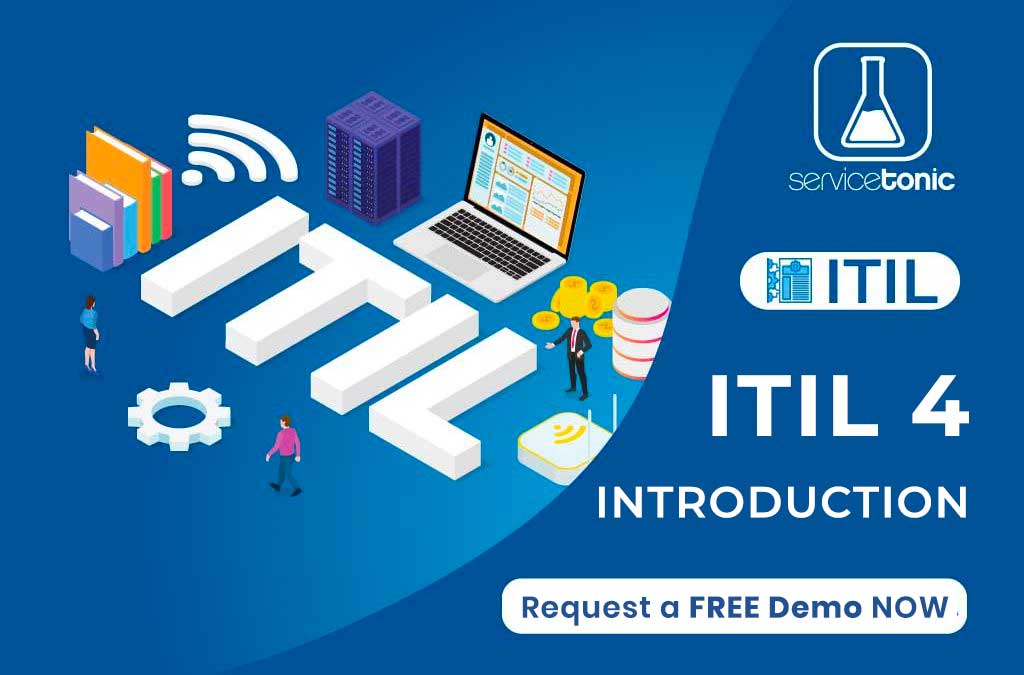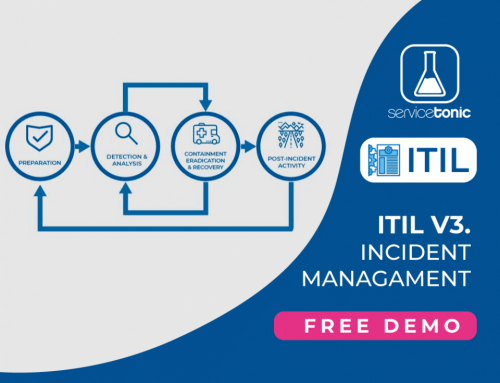Table of Contents
®What is ITIL 4?
ITIL® 4, the new version of ITIL released during 2019, adopts the latest trends in technology and service management, and provides a flexible foundation to support organizations as they experience digital transformation and integrate digital technology into all areas or their business.
In this article we summarize the main concepts of ITIL® 4 described in the 212 pages of the book “ITIL Foundation: ITIL® 4 Edition” edited by Axelos, the owner of ITIL.
Introduction to ITIL 4
The service life cycle and its 26 processes introduced in ITIL 3 have been eliminated in ITIL® 4. This gives service providers more freedom to design tailored processes that fit the organization.
ITIL® 4 incorporates a new management model based on 4 dimensions:
- Organization and People
- Information and Technology
- Partners and Suppliers
- Value Flows and Processes
To help you better understand the concepts and essence of ITIL® 4, some of the ITIL concepts described in this article are indicated both in their original English version and in their Spanish translation.
To start off, let’s look at some important definitions as defined by the ITIL® 4 itself:
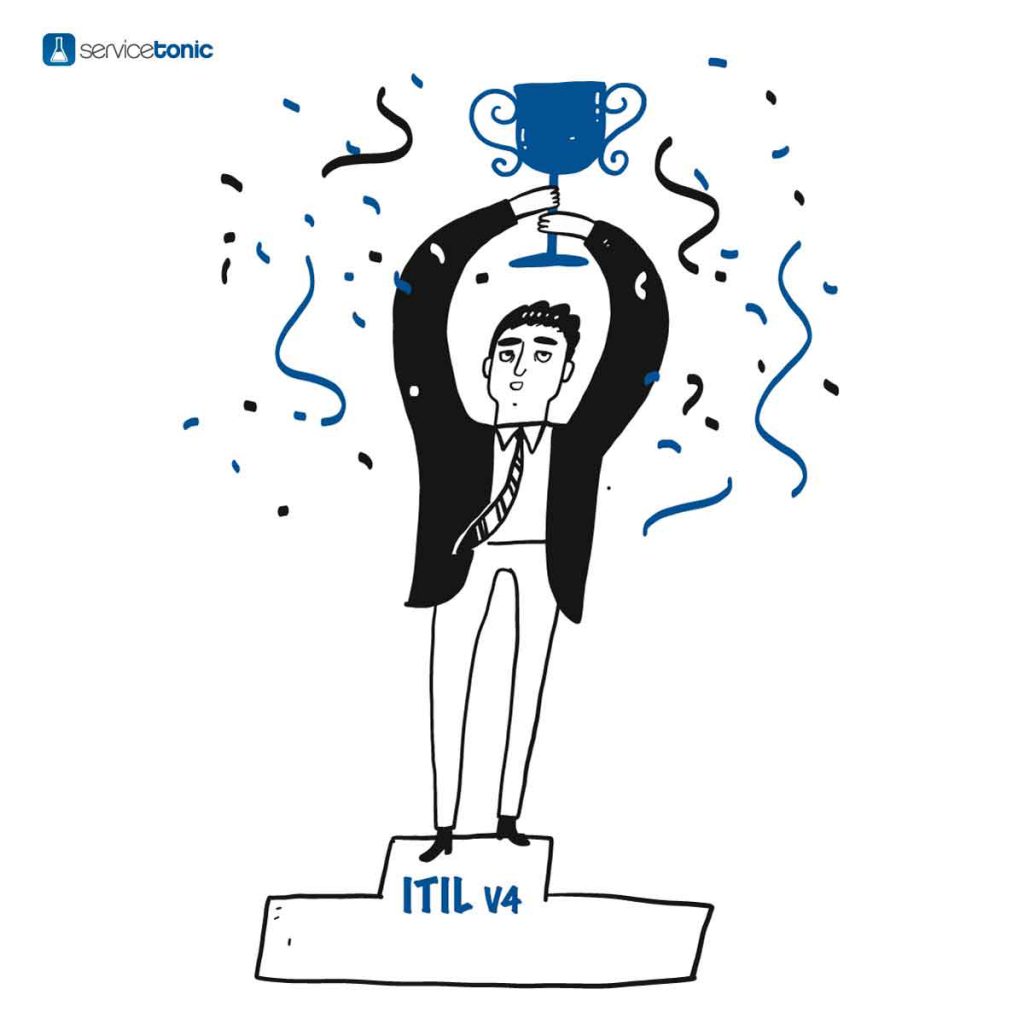
What is ITIL?
In the book ITIL® 4 Foundation, ITIL is defined as the “Good Practice Guide for IT Management (ITSM)”
So what is IT Service Management (ITSM)?
ITIL® 4 defines Service Management as “A set of specialized organizational capabilities to generate value to customers in the form of services”. It follows that IT Service Management is the set of organizational capabilities in the IT field to generate value to customers in the form of services.
And a service is defined as:
The means to enable the joint creation of value by facilitating the results that customers want to achieve, without the customer having to manage specific costs or risks.
Expressing all this in plain language
It can be said that ITSM helps improve business performance and results through better IT delivery and support by applying ITIL best practices.
Differences between ITIL 3 and ITIL 4
ITIL 3 lifespan lasted for just over 7 years, from 2011 to 2018 and was based around the “Service Life Cycle” concept which was structured in five major areas:
- Service Strategy
- Service Design
- Service Transition
- Service Operation
- Continual Service Improvement
These five areas grouped 26 processes and functions.
In 2019 ITIL 3 was replaced by ITIL 4 with a new approach to Service Management focused on the following areas:
- ITIL 4 focuses on service management, not just IT service management (ITSM), and on the co-creation of value together between the service provider and the service consumer.
- The processes and functions of ITIL 3 in ITIL 4 are now called Practices, which are increased to 34 and grouped into three groups: General Management Practices, Service Management Practices, and Technical Management Practices.
- ITIL 4 also incorporates three important concepts:
- ITIL Guiding Principles
- Service Value System
- Service Value Chain
- The 4 dimensions of service management mentioned above
ITIL 4 Guiding Principles
There are seven principles that can serve as a guide for any organization in all circumstances, regardless of changes in its objectives, strategies, type of work or management structure.
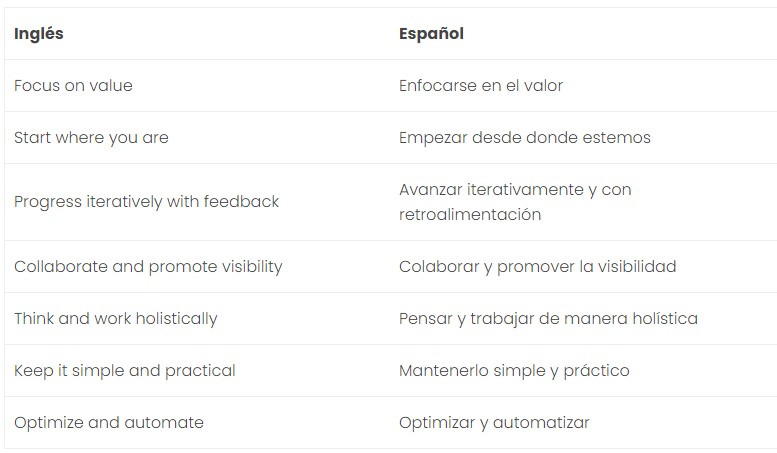
ITIL® 4 Service Value System / SVS
Model that represents how all components and activities of an organization contribute to the creation of value.
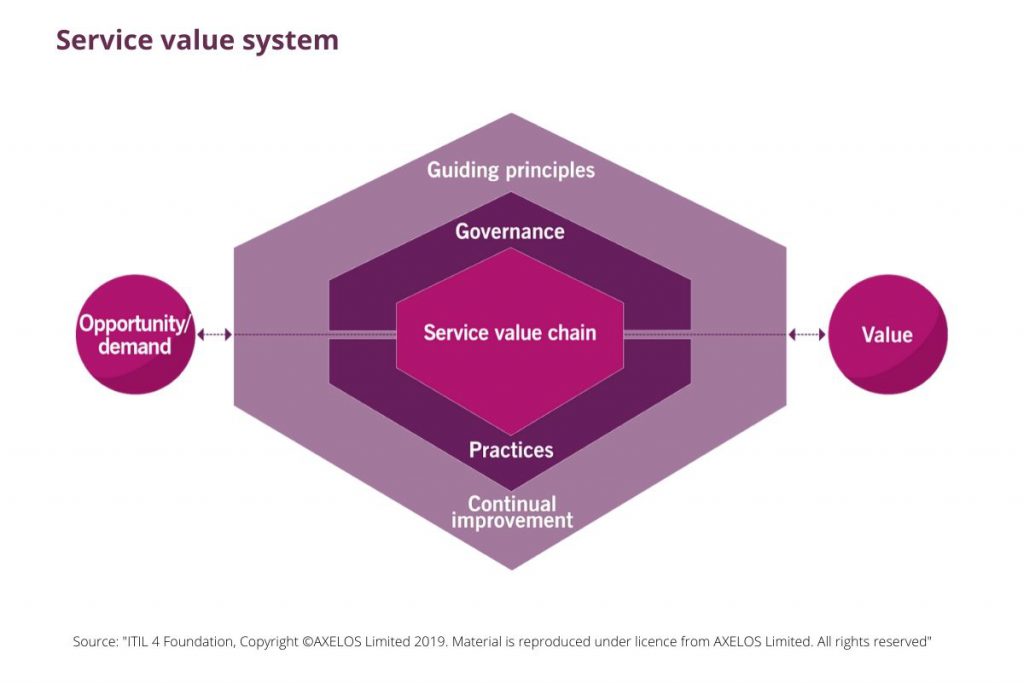
ITIL® 4 Service Value Chain
Operation model for service providers that covers all key activities required to manage products and services effectively.
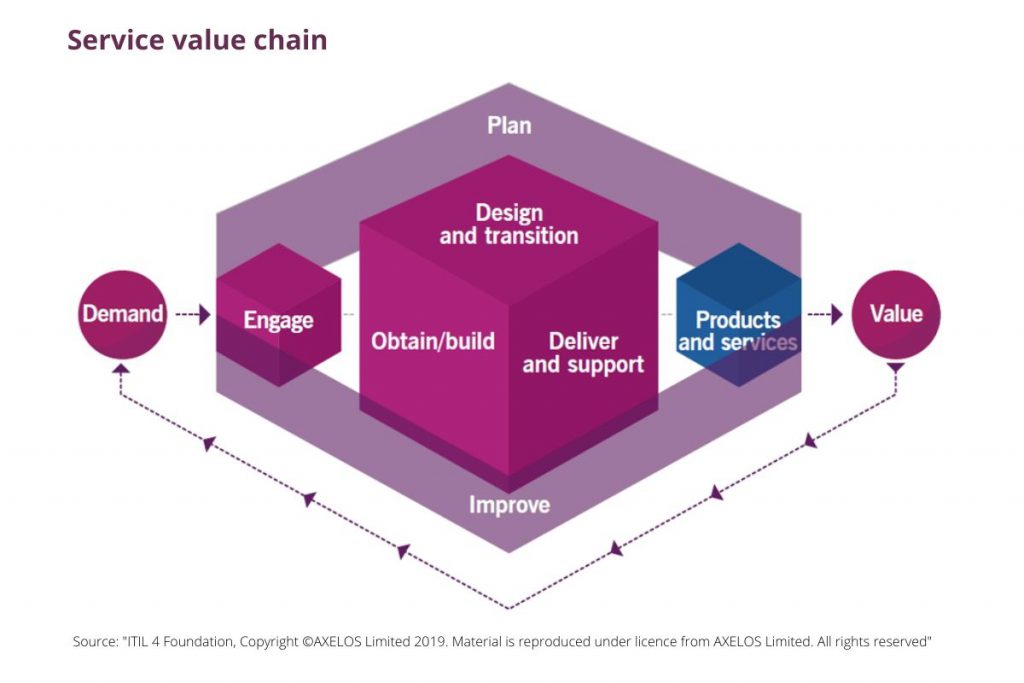
In these three concepts that make up the core of ITIL® 4 (Guiding Principles, Service Value System and Service Value Chain), it’s clear to see how this new version of ITIL® is much more open in terms of the possibility of applying its methodology to more agile management environments within IT and with the possibility of also applying it to other services beyond ITSM, since any of these key concepts can be perfectly extrapolated to other business areas.
ITIL® is a registered trademark of AXELOS Limited

